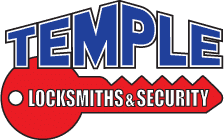So you’re looking at purchasing a safe for your home or business but you’re confused with jargon and buzzwords describing the different types of safes.
Below we\’ve outlined the most common terms used when it comes to learning about safes.
KEY SAFE
A key safe is technically a type of safe. They’re small and easy to access, and are primarily used to store small valuables or keys on a residential or commercial property. They generally open with a key, a push button or combination lock. The strength of a lockbox is weaker than that of a safe as they generally have low gauge metal thickness. You’ll often find these attached to an outside wall for easy access.
FIRE RESISTANT
A fire resistant safe is designed to protect the contents in the event of a fire, the construction of the safe container is made with heat resisting properties, a fire resistant safe although a secure container does not have the physical strength of a theft resistant safe due to it’s design.
Fire resistant times are used as a general guide on how long goods within a safe may withstand fire before being damaged or destroyed.
A safe with a fire resistant rating of 60 minutes has been designed and tested to protect any contents in the safe from fire damage for up to 60 minutes.
These rating are testing by a few different testing authorities, mainly Underwriters Laboratory (UL), Private Laboratory (PL), or the Australian and New Zealand Standards (ASNZS).
THEFT RESISTANT
A theft resistant safe is a heavy walled steel composite container, it is heavier in construction than a fire resistant safe but in some models will also incorporate fire resistant properties. These safes have high quality locks, heavy duty locking bolt-work and mechanisms and can weigh up to several tonnes and will usually feature TDR components.
CASH RATING
Cash rating refers to how much your insurance company will determine the contents of your safe for. For example, the rating is $5,000 then the safe is suitable for storing up to $5,000 in cash.
Cash ratings should be used as a guide to the level of security your safe provides. The higher the cash rating, the higher the security level of your safe, and therefore the more you can safely keep inside it.
Cash ratings quoted are a guide only and assume correct installation. Individual insurance companies\’ ratings may vary. Higher or lower figures may be applied. If it is important you should check with your insurance company before you purchase a safe.
TDR
TDR stands for torch and drill resistant.
These safes are manufactured to withstand forced entry. Theyre a premium safe and offer a high level of security, designed to protect against torch attacks, drills, grinders, and some types of explosives.
A TDR safe is commonly found in commercial spaces such as banks and larger scale businesses.
ANCHOR POINT
An anchor point is the point at which a safe is secured to the ground using strong bolts. Also known as bolt downs, anchor points are used as a way to stop thieves from stealing the safe.
When choosing a safe to purchase, its critical that you consider what you\’ll want to store in it and where your safe will be located. Understanding this will help in choosing the best safe for your needs.
If you’re still unsure on which safe is right for you, chat with our team at Temple Locksmiths & Security about your security needs.
We service Eltham, Parkville, Montmorency, Templestowe, Templestowe Lower, Bundoora, Greensborough and more.
Temple Locksmith & Security has been providing emergency, residential, commercial, industrial and automotive locksmith services to Melbourne businesses and homes since 2016. The range of locksmith solutions includes master key systems, rekeying locks, repairing locks, lock fitting, deadlock installation, electronic locks and broken key extraction. We pride ourselves on old fashioned service that you expect, backed up with the latest in technical products and knowledge.

